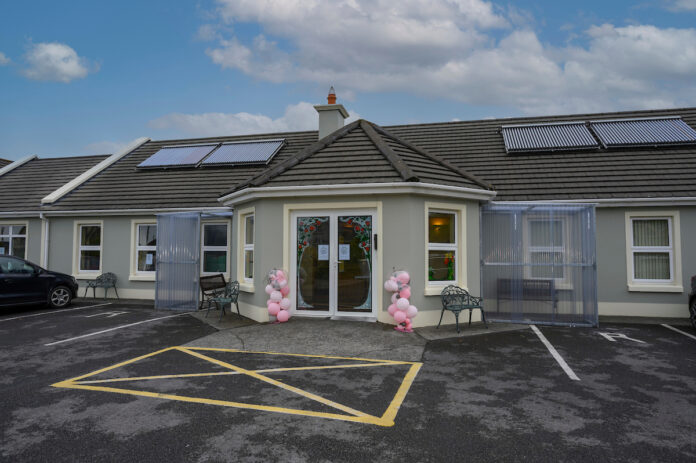IMPROVEMENTS in relation to storage, premises and infection prevention in a Kilrush Nursing Home have been requested by an independent watchdog.
While a Health Information and Quality Authority (HIQA) report found St Theresa’s Nursing Home, Kilkee Road, Kilrush was striving to implement systems and controls to protect residents from the risks associated with infections, improvements were required in relation to storage, premises and infection prevention and control governance and oversight to comply with infection control.
A HIQA inspector found auditing practices in the centre were not effective. Two external audit type reviews were seen by the inspector, but these were not sufficient in detail to drive infection prevention and control practices and renovation plans.
Additional nursing management roles had recently returned and been recruited and the inspector could see where further plans for role responsibility including auditing and supervision was starting to take place.
A number of infrastructural issues impacted effective infection prevention and control.
The sluice room was co-located with the housekeeping equipment, staff and resident stores. This arrangement can increase the risk of cross contamination between stores, household cleaning equipment and the sluicing facilities.
There were only two hand wash sinks in the sluice room and nursing office dedicated for staff use. They were not accessible or convenient to all bedrooms.
These sinks did not comply with the recommended specifications sanitary assemblies for clinical hand wash basins. Storage areas were also cluttered making it difficult to clean those areas sufficiently.
St Theresa’s Nursing Home provides 24 hour nursing care and caters for male and female residents who require general nursing care, respite, convalescence, palliative and dementia care.
The registered provider of this centre is Sundyp Ltd. It is a family run business with family members having key roles in the management and oversight of the business.
There were 28 patients in the centre when the unannounced inspection took place on September 6 last.
It was apparent from observations on the day, and from what residents told the inspector, that the residents appeared content and supported whilst living in the home.
Signage was displayed to guide staff and visitors in the correct hand hygiene and personal protective equipment (PPE) procedures.
During the walk around of the centre the inspector found that the centre was generally well maintained and clean. It was evident that decorative upgrades and maintenance were ongoing in the centre.
On the day of inspection three residents who spoke with the inspector appeared satisfied living in this centre. One said “they treat me like a queen”, another said “they are all good to me”, and a third told the inspector they liked their room.
The parts of the centre viewed by the inspector was visibly clean and decorated in a style to ensure a comfortable and homely residence. There was a variety of communal day spaces including day room, dining room, sun rooms, reception area, oratory and an enclosed garden area.
Residents told the inspector how they liked their bedrooms as they were spacious, clean and comfortable.
On the day of inspection, the staffing numbers and skill mix were appropriate to meet the requirements of 28 residents. A review of nurse and care staffing rosters showed there was a nurse on duty at all times, with a regular pattern of rostered care staff.
The person in charge was normally on duty during the weekdays and the assistant director of nursing supervised the delivery of care at weekends.
The inspector found wearing of Vinyl gloves during personal care procedures offers less protection than nitrile gloves from blood borne viruses for the wearer. Infection prevention and control audits undertaken did not guide changes to support the safety and quality of the care provided.
There was damage to flooring, walls and equipment, this impedes cleaning. A number of storage areas were cluttered.
Nebuliser compressor machines were unclean and not maintained as per manufactures instructions.
In its response, the centre pledged it would separate the sluice and cleaning room to infection prevention control.
Stores would be organized with specific purpose to ensure safety of work.
Gloves in stores clearly highlighted that Nitrile are for clinical areas only as two boxes were placed in error on Dani centre.
Flooring, walls and equipment including nebulisers have been identified to be corrected.
Clinical sinks will be introduced within the building for staff use. Audit and IPC governance will be fully reviewed to ensure compliance in all aspects.
The chemical cupboard where lock faulty has since been removed others are correctly lockable with storage of items for housekeeping and kitchen areas.
The centre is currently working on all areas highlighted above to ensure best practice as advised and highlighted in the inspection and hope to be fully compliant by February 28, 2023.
East Clare correspondent, Dan Danaher is a journalism graduate of Rathmines and UL. He has won numerous awards for special investigations on health, justice, environment, and reports on news, agriculture, disability, mental health and community.


